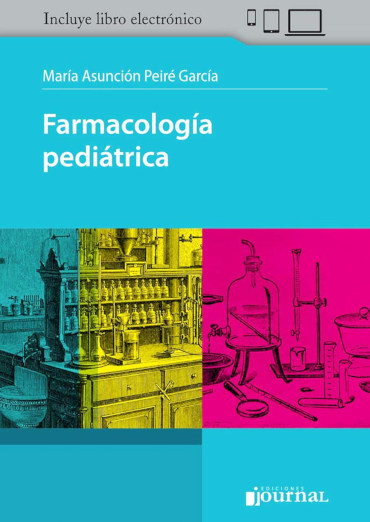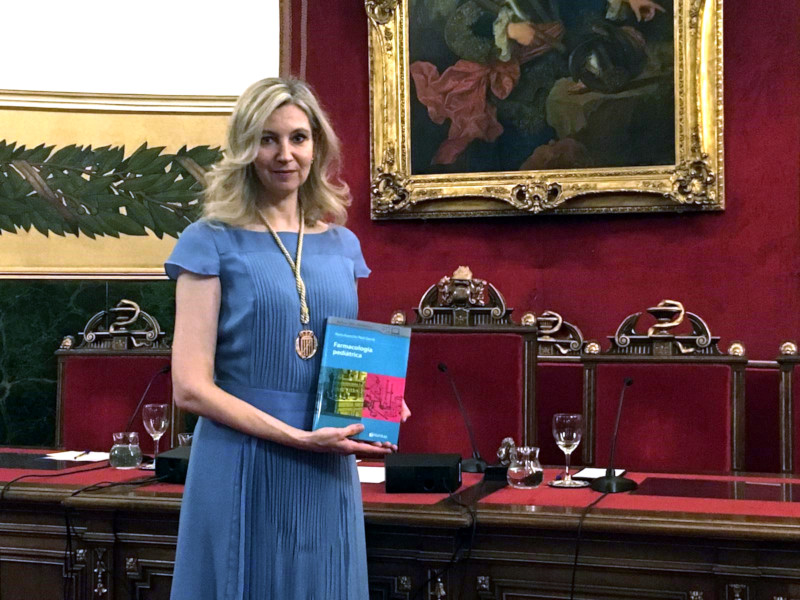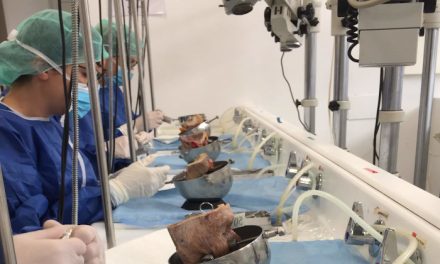 Asunción Peiré, corresponding academician of the Royal European Academy of Doctors-Barcelona 1914 (RAED), presented on June 4 at the Spanish Royal National Academy of Medicine the book “Farmacología Pediátrica” (Pediatric Pharmacology), a work where she synthesizes more than two decades of professional practice dedicated to the study and research of this “orphan” subject as a hybrid discipline between pharmacology and pediatrics. The work is the result of a vast work of research, synthesis and systematization of all aspects related to this novel specialty, covering aspects of pediatric basic pharmacology as well as therapeutic, going through clinical research with minors and their ethical and legal conditions.
Asunción Peiré, corresponding academician of the Royal European Academy of Doctors-Barcelona 1914 (RAED), presented on June 4 at the Spanish Royal National Academy of Medicine the book “Farmacología Pediátrica” (Pediatric Pharmacology), a work where she synthesizes more than two decades of professional practice dedicated to the study and research of this “orphan” subject as a hybrid discipline between pharmacology and pediatrics. The work is the result of a vast work of research, synthesis and systematization of all aspects related to this novel specialty, covering aspects of pediatric basic pharmacology as well as therapeutic, going through clinical research with minors and their ethical and legal conditions.
Doctor in Medicine and Surgery, lawyer and pharmacologist, Peiré has managed to give this treaty a transversal character of interest for child health professionals (pediatricians, anesthesiologists, intensivists, family doctors, neurologists and oncologists, among others) as well as other disciplines (members of clinical research ethics committees or jurists). In addition, logically, of the pharmaceutical industry. The book is divided into three sections: “Bases of the pharmacology of development”, “Principles of therapeutics in pediatrics” and “Ethical and legislative aspects in pediatric research”.
It’s the first Spanish work that deals in a complete way with all the aspects related to the pharmacological bases of childhood age. For the author it’s a moral obligation as well as a privilege to have tried to systematize and bring order to such a broad subject. “Why a work of almost three hundred pages dedicated exclusively to the study of such a unique discipline? For Galen, teacher of rational pharmacology, age was already a therapeutic condition. It will be necessary to resume this important reflection in the 20th century as a result of the serious therapeutic tragedies that occurred in children, such as phocomelias due to thalidomide or the baby gray syndrome due to chloramphenicol”, says Peiré.
Presentation video





